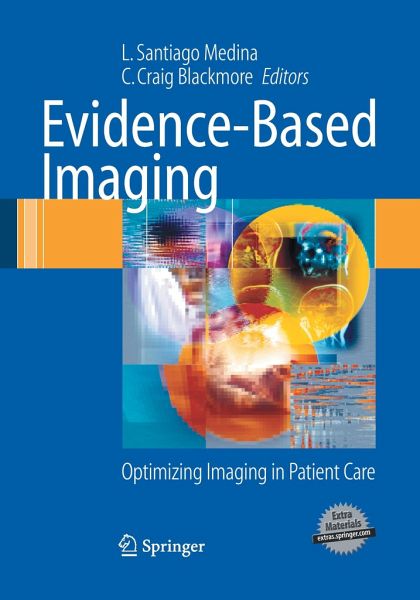
Evidence-Based Imaging
Optimizing Imaging in Patient Care
Herausgegeben: Medina, L. Santiago; Blackmore, C. Craig
Versandkostenfrei!
Versandfertig in über 4 Wochen
286,99 €
inkl. MwSt.

PAYBACK Punkte
143 °P sammeln!
Evidence-Based Imaging presents the radiologist with a user-friendly guide to the evidence-based science and the merit behind the diagnostic imaging studies performed in medicine. This book gives the reader a clinically relevant overview of epidemiology, selection of subjects for imaging, selection of imaging strategies, imaging test performance and cost, cost-effectiveness analysis, and applicability to children. Nine major areas of medical imaging are covered, with an emphasis on common diseases. These include Oncology, Neuroimaging, Gastroenterology, Pediatrics, Respiratory System, Musculos...
Evidence-Based Imaging presents the radiologist with a user-friendly guide to the evidence-based science and the merit behind the diagnostic imaging studies performed in medicine. This book gives the reader a clinically relevant overview of epidemiology, selection of subjects for imaging, selection of imaging strategies, imaging test performance and cost, cost-effectiveness analysis, and applicability to children. Nine major areas of medical imaging are covered, with an emphasis on common diseases. These include Oncology, Neuroimaging, Gastroenterology, Pediatrics, Respiratory System, Musculoskeletal, Cardiovascular, Trauma, and Urologic.
Radiologists, clinicians, residents, and others with an interest in medical imaging and a desire to keep current with the vast amount of evidence-based literature will find this text extremely useful.
Radiologists, clinicians, residents, and others with an interest in medical imaging and a desire to keep current with the vast amount of evidence-based literature will find this text extremely useful.




